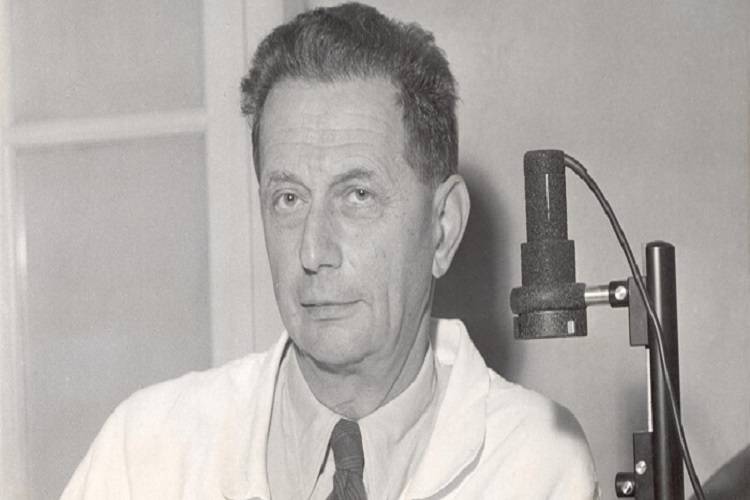Andre Michel Lwoff (8 May 1902 – 30 September 1994) was a French microbiologist. In 1965, he was awarded the Nobel Prize in Physiology or Medicine.
Life and Career
Andre Michel Lwoff was born on 8 May 1902, in Ainay-le-Château, France. He displayed a keen interest in science from a young age, which eventually led him to pursue a career in microbiology. Lwoff’s academic journey began at the University of Paris, where he studied medicine and earned his medical degree in 1927. However, his fascination with microorganisms and their behavior compelled him to delve deeper into the field of microbiology.
Lwoff’s career in microbiology took off when he joined the Pasteur Institute in Paris, one of the world’s leading centers for microbiological research. There, he made significant contributions to the understanding of viruses, bacteria, and the interplay between them. His work primarily revolved around the study of bacteriophages, which are viruses that infect and replicate within bacteria.
One of Lwoff’s most notable discoveries was the concept of the “lysogenic cycle,” which explained how certain bacteriophages could integrate their genetic material into the DNA of their host bacteria, remaining dormant until specific triggers activated them. This groundbreaking work laid the foundation for our understanding of the mechanisms behind viral latency and the regulation of gene expression.
Lwoff’s research also extended to the field of microbiological genetics, where he made essential contributions to our understanding of gene regulation and the role of regulatory genes in controlling various cellular processes. His work significantly advanced our knowledge of how living organisms control and adapt to their environments.
Andre Michel Lwoff passed away on 30 September 1994, in Paris, France.
Award and Legacy
In 1965, he was awarded the Nobel Prize in Physiology or Medicine, alongside François Jacob and Jacques Monod for their pioneering research on the genetic control of enzyme and virus synthesis. This Nobel Prize acknowledged his pivotal role in elucidating the molecular mechanisms that govern gene regulation and viral infection.
In recognition of his lifetime of outstanding contributions to science, Lwoff received the Lavoisier Medal from the French Chemical Society. This award further underlined his importance in the world of microbiology and genetics.
Lwoff’s research on bacteriophages, lysogeny, and gene regulation laid the groundwork for our understanding of these fundamental aspects of microbiology. His work provided insights into the mechanisms by which viruses interact with host organisms, and it continues to serve as a basis for ongoing research in virology and genetics.
Lwoff’s scientific legacy lives on through the André Lwoff Archives at the Pasteur Institute in Paris. This collection houses his scientific papers, correspondence, and laboratory notebooks, preserving his contributions for future generations of researchers and scholars.
Lwoff’s dedication to scientific inquiry and his pioneering spirit have inspired countless researchers and students to explore the intricacies of microbiology and genetics. His Nobel Prize-winning work continues to be studied and built upon by scientists worldwide, shaping the field for decades to come.

